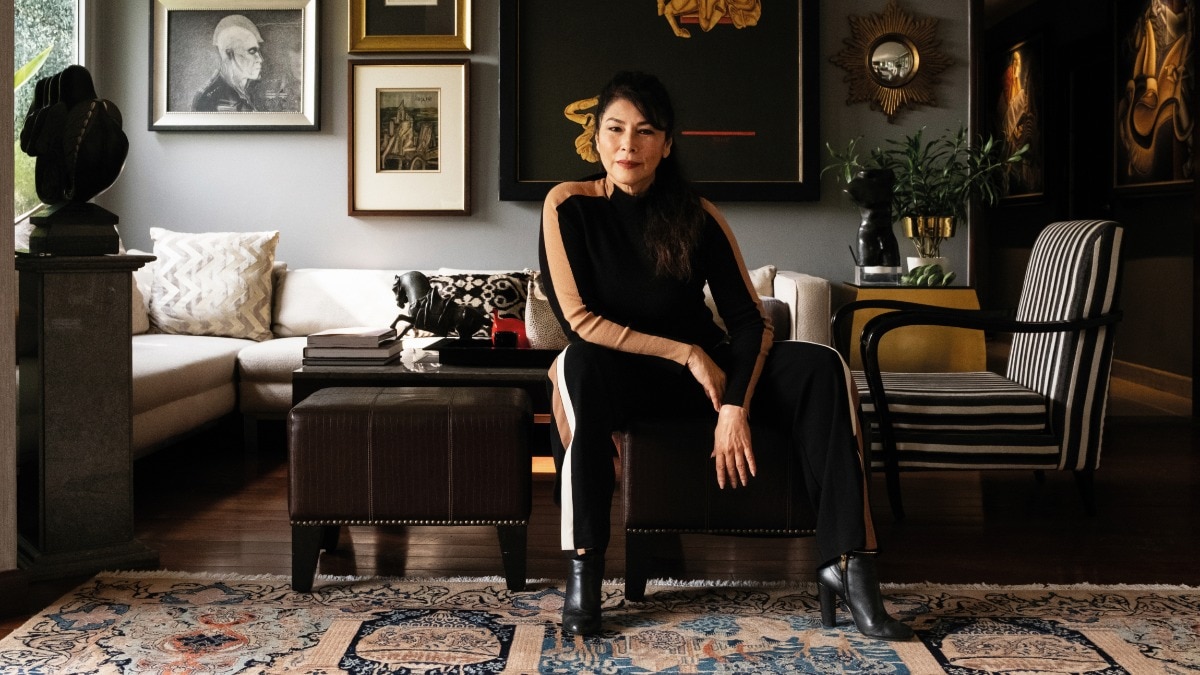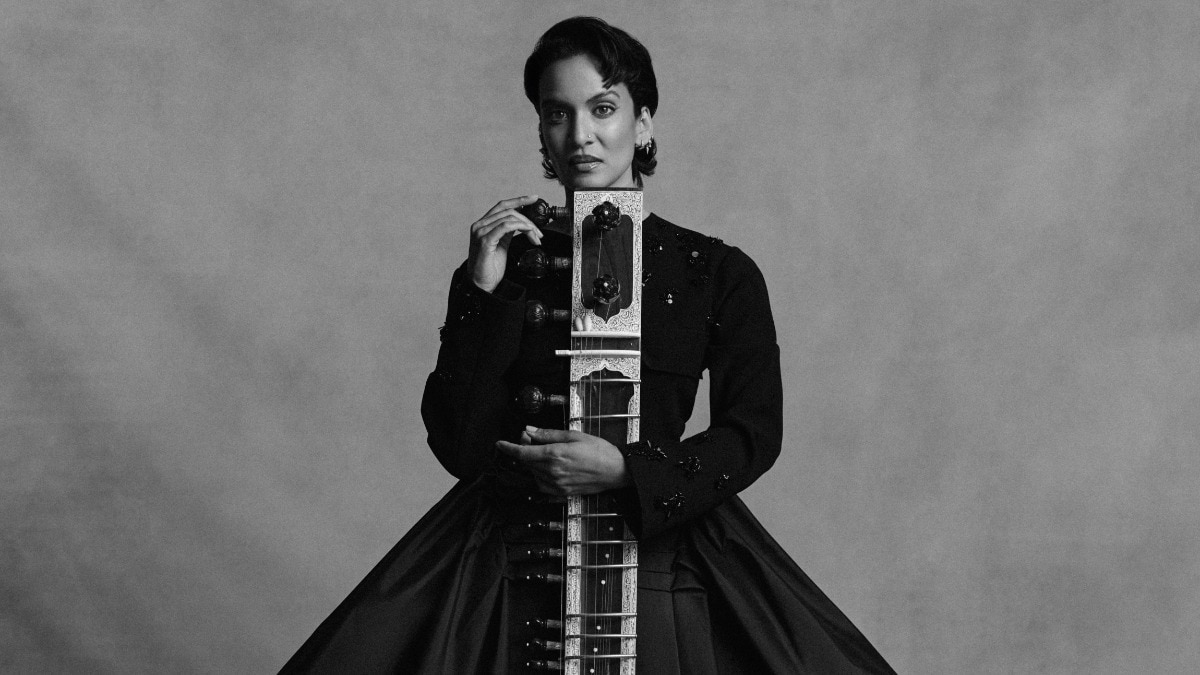Here’s why you need to consider personal rebranding to ace at work and life
Whether you are returning to work or reacquainting yourself with office life, now is the time to cultivate a professional persona that aligns with your ambitions.


Thirteen months is a long time in magazine land—and even more so following a pandemic, when consumer habits have shifted and ways of working have altered beyond recognition. So it was with not a little trepidation that I resumed my position at Bazaar earlier this year, having dedicated the best part of 2021 to being a mother. In an industry where first impressions count, I found myself wondering whether the new—mostly exhausted—me would make a convincing brand ambassador for the magazine. How would I summon the energy to hold my own in a creative brainstorm, let alone work the room at a networking event? Could I still walk in heels after months living in trainers? And did the team really need me when they had managed perfectly well without me for so long?
Of course, I am far from alone in having felt anxious about going back to the office. Though not everybody is juggling nursery drop offs with breakfast meetings, many of us are negotiating the morning commute for the first time in months, and I’m not the only person who hasn’t worn a pencil skirt in a while. The truth is, we have all become habituated to home working, and as tempting as it is to continue with the leggings and Uggs, getting dressed up for a day in the office can be a valuable psychological boost. "Countless studies have shown that spending time on your personal presentation can help increase confidence and enhance wellbeing," says the former Interbrand CEO (now John Lewis Partnership deputy chair) Rita Clifton. "As women, we shouldn’t apologise for caring about our appearance."
Before going on maternity leave, I had always favoured the floaty ease of dresses, daunted by the prospect of squeezing into a stiff suit, but in preparing for my return to work, I challenged myself to experiment with a different style. I booked a personal-shopping session with the womenswear designer Joanna Dai, a former investment banker who came up with the idea for her brand Dai after being frustrated by the lack of versatile workwear options on the market. She took one look at my figure and persuaded me to try on a pair of high-waisted tailored trousers in a chic espresso shade that made me feel instantly, and unexpectedly, powerful. Perhaps I was imagining it, but it seemed to me that when I wore them to the office the following week, I spoke with more authority and commanded greater respect from my colleagues. "There’s something about putting on well-fitted clothes that helps you show up with presence and gravitas," explains Dai.
But just as a company’s brand refresh would involve more than redecorating its office, any changes I might make need to go deeper than my outfit. As Clifton says: "To suggest that your personal brand is just your name, face and clothes is the equivalent of saying a commercial brand is nothing more than its name and logo—you’ve got to think about the substance beneath that." She recommends carrying out an audit of your capabilities and how these might contribute to your long-term goals. "Write down what you want for yourself. Is it to earn more money, to progress, to learn new skills? Think about which areas you might need to improve on, but don’t underestimate the strengths you’ve developed while you’ve been away, whether that’s the emotional intelligence you gained on maternity leave or the technical know-how from remote working. By focusing on who you are and what you want to become, you’re taking proactive control of your career, as opposed to being the supplicant."
While Clifton’s advice is sound, seeing the bigger picture can be hard when time is against you. As a working mother whose day is truncated by the demands of nursery runs and bedtime routines, I find I only just manage to tick off the things on my to-do list, let alone worry about progressing to the next stage of my career. So I sought counsel from the author Vanessa Van Edwards, whose new book Cues promises to show women how small behavioural tweaks can transform the way they are perceived in the office. When I asked her how best to handle leaving a meeting early to pick up my daughter, she had a simple tip: "Every time you want to say 'sorry', try saying 'thank you' instead." Being overly apologetic not only creates delays, it associates you with negativity and defeat, whereas thanking colleagues for their time, before departing promptly, makes you appear courteous but efficient.
Van Edwards points out that women—and especially new mothers—often have to go out of their way to demonstrate ambition. "Humans judge each other all the time, and most of our judgements are based on two traits: warmth and competence," she explains. "Women are typically seen as high-warmth, and that has an impact on how seriously people take us. Warmth is great—it’s about likeability, trust, collaboration—but if we’re negotiating or going for a leadership role, we’ll need to balance it out with competence." I am fortunate to work alongside several senior team members (my own editor included) who have small children, so I don’t feel the need to conceal my softer side completely; nonetheless, in the same way that I’ll choose different clothes for work and home, I am discovering that I prefer to set boundaries between my professional and personal life. There’s a certain pleasure in leaving behind the bibs and beakers and toy boxes—all the paraphernalia of parenthood—when I make my way to the office each morning; in finding myself relied upon for my intelligence and insight rather than for more primeval functions.
For me, then, the return to office life is not so much a story of reinvention as rediscovery: just as an athlete regains strength through muscle memory after a period of inactivity, each new challenge—writing a feature, negotiating a partnership, chairing a panel discussion—is helping me to rebuild the cornerstones of my personal brand. And if the idea of a more radical overhaul appeals, go for it: with all of us feeling our way tentatively back into the real world, no one will look askance when you try something new. "Go in with the right attitude, rather than being defeated by the fact that you haven’t seen people in a long time," says Clifton. "It’s an opportunity to re-present yourself and renew your relationship with colleagues—that isn’t scary, it’s refreshing." Now to dust off that power suit, and you’ll be good to go…
This piece originally appeared in Harper's Bazaar UK in May 2022.










